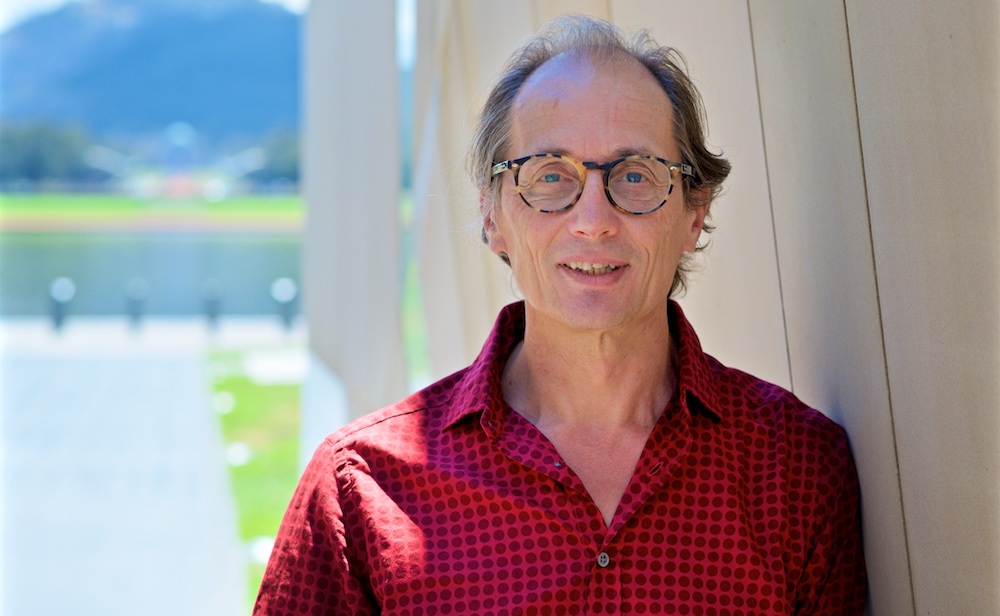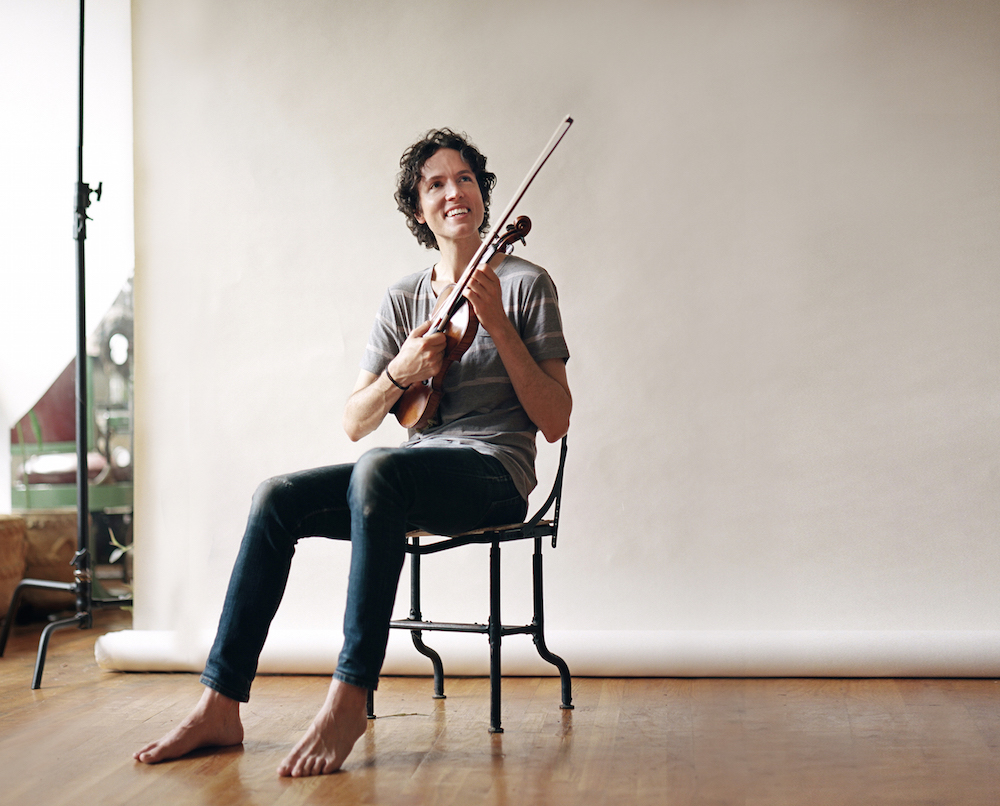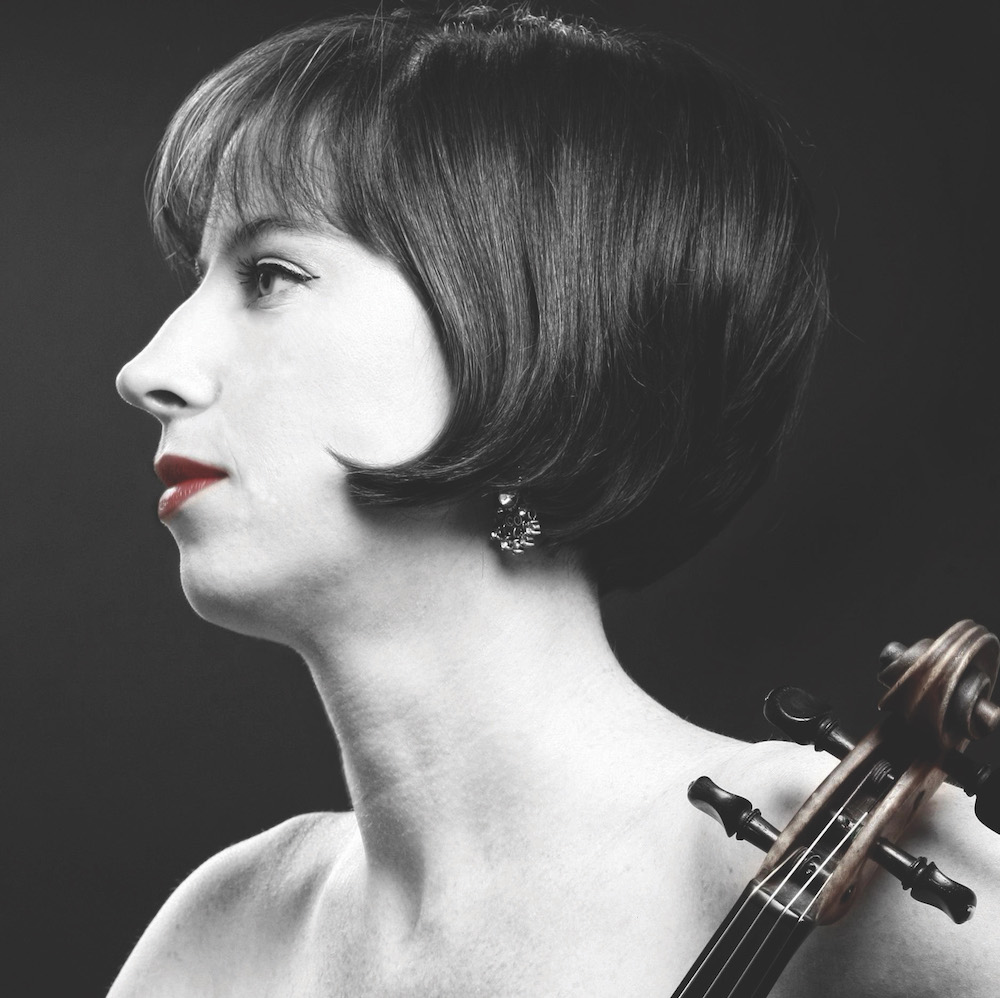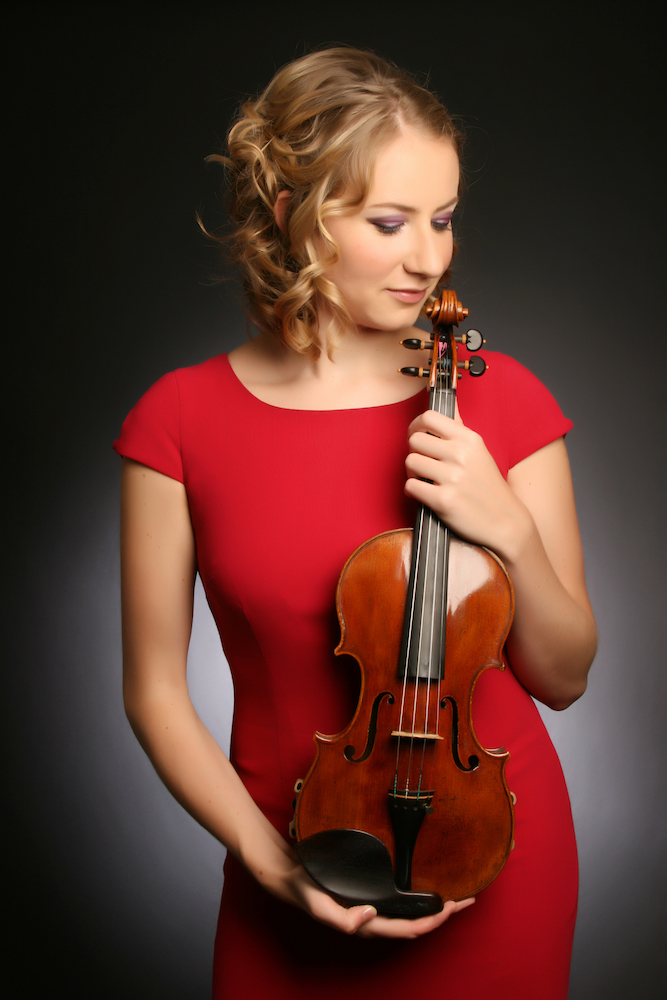Following last year’s Canberra International Music Festival, which delved into ideas of revolution and social upheaval 100 years on from the Russian Revolution, the wide array of offerings in the 2018 festival – spanning medieval to avant-garde music – are bound together by the idea of ‘Return’.
 Canberra International Music Festival Artistic Director Roland Peelman. Photo © William Hall
Canberra International Music Festival Artistic Director Roland Peelman. Photo © William Hall
“I’ve always wanted to present Canberra audiences with a very broad range of music – not just classic chamber music, or late 19th-century, early 20th-century music,” Festival Artistic Director Roland Peelman tells me over chocolate cake at the Lindt Café in Sydney’s Martin Place. “For many years now this festival has followed a strong curatorial direction,” he says, “with a programme that carries plenty of inner connections, and gives people something to think about beyond the sheer beauty of the repertoire or the performances.”
The audience in the nation’s capital, he explains, is a rather unique beast: “a highly educated, knowledgeable, geeky, opinionated, well-read audience. They expect things to be properly thought through.”
The 2018 Festival evolved around the idea of ‘Return’, whether physical return – from travel or war – or a return to earlier musical styles and ideas. “I wanted to design a festival that delves into the roots of our music making – the beginnings of Western music practice, the origins of our traditions, the point where folk music and oral traditions meet the earliest forms of art music as we know it.”
And while this might not be everyday concert fare, it will get people interested. “Canberra is full of specialists, nerds, scientists and medievalists who dwell in dark corners of libraries, or in cellars by candlelight,” Peelman says. “They exist, and a lot of them live in Canberra!”
This was really brought home for Peelman with the 2015 Festival, when he programmed Hildegard von Bingen’s complete Ordo Virtutum. “Here is a play from the 12th century and it was a best seller”. That and a concert of Philip Glass were the top tickets that year, easily outselling a Beethoven cycle of piano sonatas.
“That gives me hope,” he says, as it shows how the festival is an opportunity to offer experiences outside of the ordinary concert experience.
The 2018 Festival promises to bring a similarly adventurous programme to Canberra and, in contrast to last year’s, early music is back with a vengeance.
And in the spirit of the Hildegard von Bingen in 2015, Benjamin Bagby is bringing his acclaimed performance of the Anglo-Saxon epic Beowulf to the capital. “This is an artist who has spent his life in medieval music – and very specifically researching Beowulf – and he’s turned it into a one-man show, singing this gorgeously colourful text by memory whilst accompanying himself on the Celtic harp,” Peelman says.
Beowulf isn’t the only work on the programme to draw on literature. “We’ve got Tennyson’s Enoch Arden spoken by John Bell,” Peelman says. The acclaimed Australian actor’s performance of Richard Strauss’s setting with pianist Simon Tedeschi will take place at the National Gallery of Australia on the Festival’s opening weekend. “These are the great stories in our culture that deal with travelling, adventure, going away from home,” Peelman explains. “Then you have to go back. What are you going to find?”
“The Odyssey – the second major epic in Western culture (The Iliad being the first) – deals exactly with that,” he continues. ”Someone who leaves the battlefield and takes ten years to return home.”
Homer’s text inspired the programme Ulysses Now, which features music by Monteverdi from Il Ritorno alongside works by Alex Pozniak, Robert Davidson and the Festival’s 2018 Composer-In-Residence Mary Finsterer. “The Odyssey was the first adventure novel ever written – a kind of adventure movie – very Steven Spielberg,” says Peelman. But we would be amiss to forget about the darker resonances today, he explains, with more people across the planet displaced from their homes now than at any time since the Second World War.
The concept of ‘return’ also aligns with the centenary of the end of World War I, highlighted in a concert named A Soldier’s Return. “This has emerged from a major project led by the Australian Defence Force that involves artistic expression in dealing with mental issues of returning service men and women from the theatre of war.
“There still is war around the world,” Peelman says. “The methods and strategies have changed, but still people return from the theatre of war scarred, often for life.”
But the Festival is not without a lighter side, with duo Dapper’s Delight – Susanna Borsch on recorder and Adrian Brown on anglo concertina and voice – performing 17th and 18th-century music such as The Virgin’s Frolick and Oh, That Gorgonzola Cheese.
“I call it ‘the music that fell through the cracks’ – the residue of our music traditions,” says Peelman. “Little jigs and songs that might have circulated on the street. Some are hilarious, and some are surprising or touching! There is so much fun to be had with these songs and dances. It gives us a bit of insight into the not-so-arty art music.”
More early music comes to town with Bach Akademie Australia (performing Bach as well as Handel) and period instrumentalists such as the Italian ensemble I Bassifondi performing irreverent versions of guitar music from the 16th and 17th centuries, blending written and improvised traditions.
“It sheds a slightly different light on our traditional perceptions of early music and how attitudes have changed,” says Peelman. “It’s very sexy stuff.”
With other guests including the Orava Quartet, didgeridoo virtuoso William Barton, pianist Roger Woodward, percussionist Claire Edwardes and many more, there are plenty of reasons for music lovers to return to Canberra in 2018.
ROLAND PEELMAN’S FESTIVAL HIGHLIGHTS

Four Seasons
New York violinist Tim Fain will tackle Max Richter’s re-imagining of Vivaldi’s well-loved concerto cycle in a concert featuring the Seven Harp Ensemble performing works by Ross Edwards, Mary Finsterer and Camille Saint-Saëns. “Tim is that kind of ‘new breed’ violinist, the man of the virtual concerto, the virtual world,” says Peelman. Fain will also lead Stravinsky’s The Soldier’s Tale and perform Leonard Bernstein’s Serenade to finish the Festival. “That’s our birthday tribute.”

Israel in Egypt
Handel’s oratorio, at the centre of the festival, will be one of the highlights. “An amazing piece, with top-notch baroque specialists across the board,” Peelman says. A crack-team of soloists will join musicians from Madeleine Easton’s Bach Akademie Australia and a chorus made up of singers from Coro, Kompactus and Luminescence Chamber Singers to tell the story of the Israelites’ escape from Egypt. “It should be fantastic,” Peelman says, “a blast!”

Cecilia Bernardini
Dutch-Italian violinist Cecilia Bernardini (“Amazing playing on classical violin,” Peelman enthuses) and fortepianist Keiko Shichijo are guests this year. “You’ll hear Beethoven and Schubert on historic instruments,” Peelman says. The pair will perform in concerts including Schubert’s Trout Quintet on Classical instruments. “This is music from the beginning of our modern concert tradition. Imagine hearing it as Schubert once did. That’s worth featuring in a festival.”
Canberra International Music Festival takes place in venues across Canberra from April 27 to May 6. Tickets are on sale now.











Comments
Log in to join the conversation.